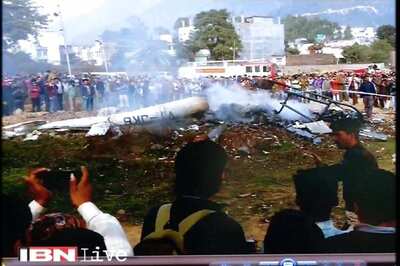
views
A number of cities in India have been hit by mosquito-borne diseases, especially malaria and dengue. While chikungunya, zika and encephalitis are other vector-borne diseases, dengue and malaria have caused the maximum distress in the low-lying areas of India.
A mosquito-borne disease, dengue, is caused by the bite of infected Aedes mosquito. While there have been a number of deaths in areas of Telangana and Chennai, Lucknow has also reported a few dengue cases. In fact, the dengue virus seems to be rapidly spreading in the city. As many as 15 new cases have been reported in the last 24 hours, making it the highest number of cases in a single day. This had led the tally to reach 112 this monsoon since July and 160 since January. September 15 and September 17 saw 10 and 11 patients, respectively.
Among the fresh 15 cases, 10 were males and five were women. Out of these, two patients are children. The cases were reported from 11 localities, which include Aishbagh, Tikrohi, Rajajipuram, Talkatora, Salehnagar, Aashiana, Jankipuram, Manaknagar, Shardanagar, Krishnanagar, Rajajipauram and Shardanagar.
The health officials told The Times of India that all patients were tested positive at KGMU and are now out of danger. Chief medical officer Narendra Agarwal also said that the officials are probing the Tuesday’s suspected death due to dengue.
The growing number of cases of dengue in Lucknow city is causing major alarm among health officials. The dengue virus has five different types, each of increasing severity. While infection with one type of variant can give lifelong immunity to it, the immunity shortens for the other types. The Dengue fever lasts for up to seven days often with a drop and then small resurgence towards the end (biphasic pattern).
The health officials have also reported in their previous statements that are taking extra precautions to keep mosquitoes at bay. Additional chief medical officer DK Bajpai said, “Every locality will be covered under the campaign and surprise inspections will be carried out. Many of these inspections have revealed that people let water accumulate in unused coolers, refrigerators, flower pots and other such containers, which turns into mosquito breeding ground.”




















Comments
0 comment